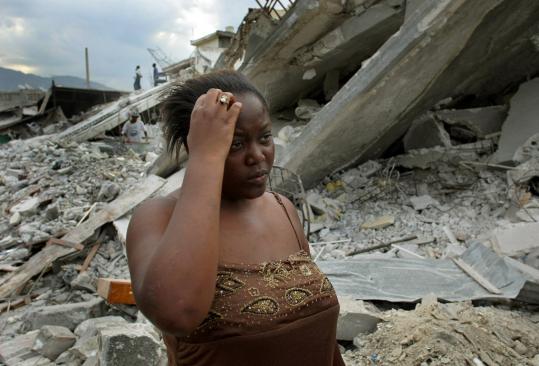Rules entangle many striving
to return to US from Haiti
 |
|
DAVID L. RYAN/GLOBE STAFF |
| Want to send this page or a link to a friend? Click on mail at the top of this window. |
More Special Reports |
| Posted February 4, 2010 |
|
Rules entangle many striving |
||
|
to return to US from Haiti |
||
|
|
||
|
||
| Jenny Ulysse of Boston, a US permanent resident, was visiting family when the eartquake hit. Ulysse lost her green card in the rubble and is stuck in Haiti for now, |
|
By Jenna Russell |
|
GLOBE STAFF |
| Wehaitians.com, the scholarly journal of democracy and human rights |
| More from wehaitians.com |